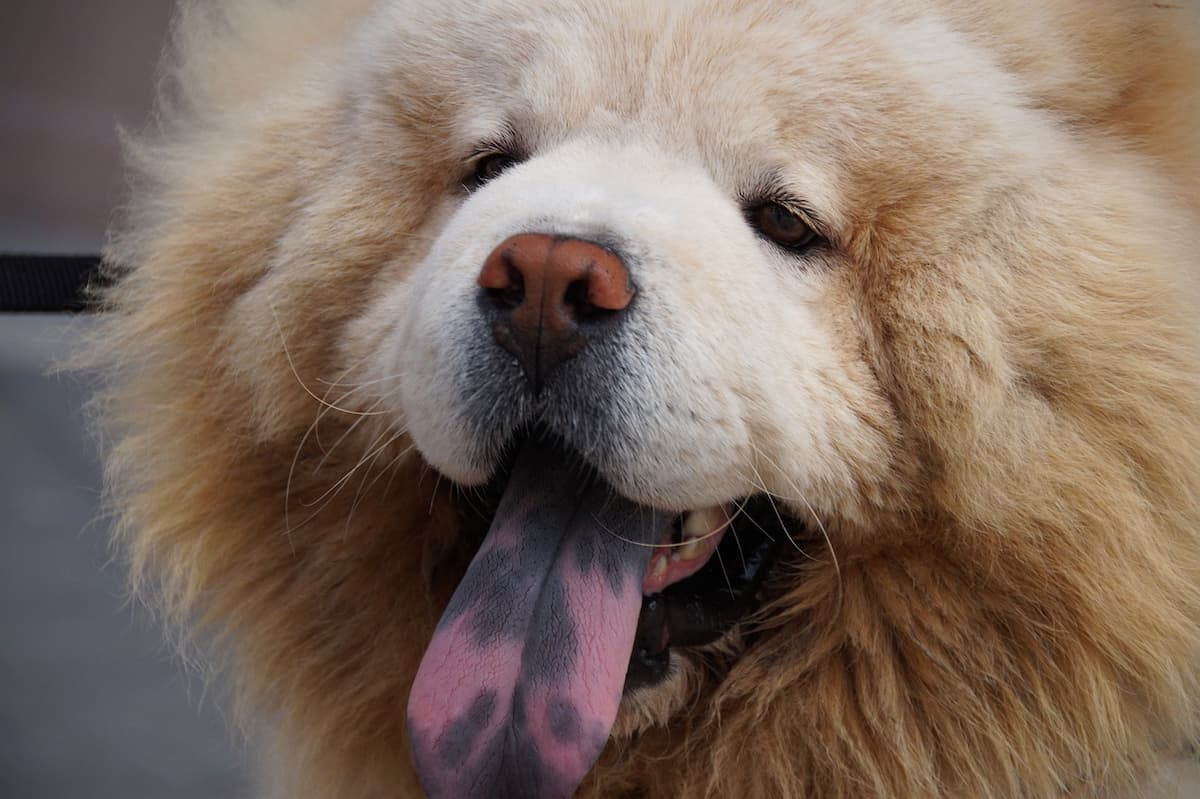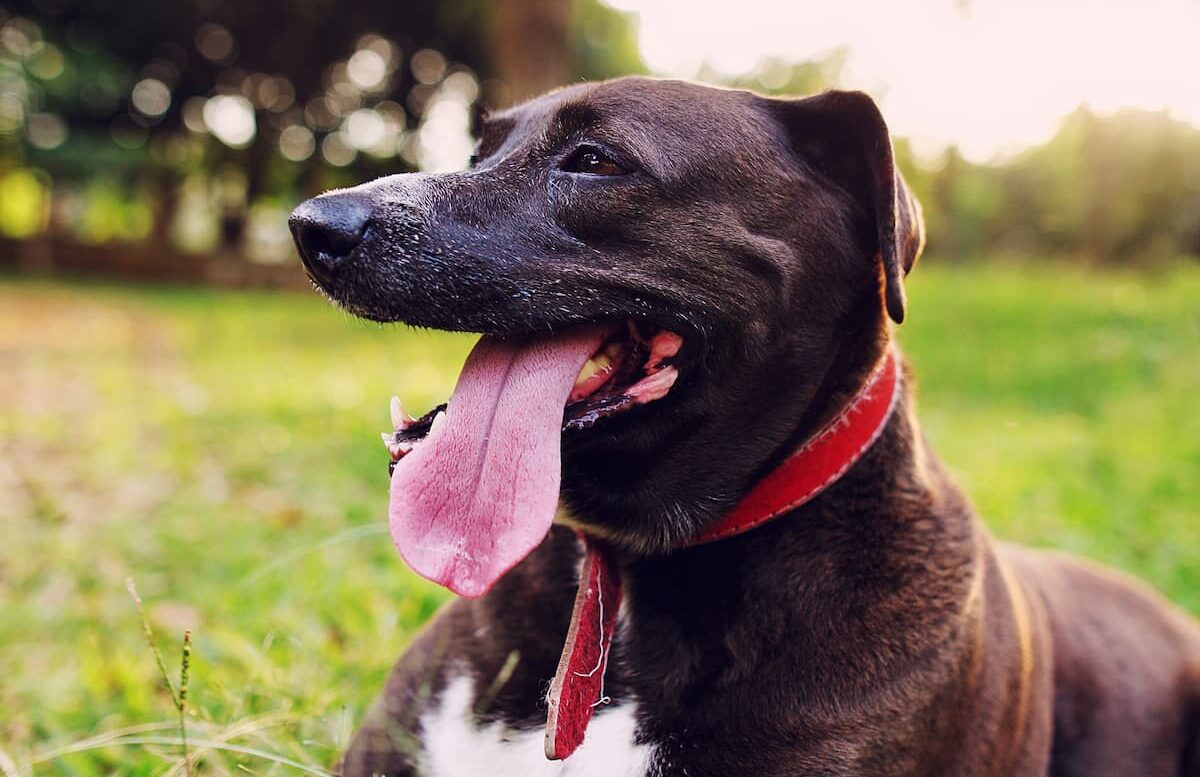Ever wondered why some dogs have the cutest little black spots on their tongues?
It’s like they splashed some dark paint on their lickable canvas!
Read on to find out.
Uncover the Mystery of Why Dogs Have Black Spots on Their Tongues
Dogs are fascinating creatures, aren’t they?
One of the aspects that make them even more intriguing is the presence of those mysterious black spots on their tongues.
It’s something you may have noticed but never really pondered about.
Well, here are the fascinating facts behind these strange spots.
Contrary to popular belief, the presence of black spots on a dog’s tongue is not limited to specific breeds or sizes.
In fact, dogs of all shapes and sizes can have them!
However, some breeds like the Chow Chow, Shar Pei, and the Labrador Retriever are more likely to have these spots.
These spots, also known as “lingual melanosis,” are caused by an increase in the production of melanin, which is the pigment responsible for giving color to our skin, hair, and even the tongue.
However, while humans usually have the same skin color throughout their entire lives, dogs’ tongues can change over time, and so the black spots may appear and disappear in certain cases.
While the exact reason for the occurrence of black spots on a dog’s tongue remains a bit of a mystery, scientists believe it may be attributed to a genetic mutation.
The inheritance of these black spots follows a fascinating pattern.
It’s an example of incomplete dominance, meaning that it doesn’t follow the typical dominant or recessive inheritance patterns we often associate with genes.
Instead, it’s a bit more complex.
When two dogs, one with black spots and one without, are bred together, the offspring can have three possibilities – they can either have no spots, a few spots, or a fully spotted tongue.
Some hypotheses suggest that the spots could have been inherited from the ancient ancestors of dogs, such as wolves.
Others speculate that it could be a result of selective breeding, as these spots have been noticed in various breeds.
What Purpose Do These Black Spots Serve?
Theories about the function of black spots on dog tongues have puzzled pet owners and scientists alike for decades.
One theory proposes that the black spots serve a protective function.
Some experts suggest that the pigment in these spots could act as a form of natural sunscreen for the tongue, protecting it from harmful UV rays.
Given that dogs frequently use their tongues to explore their environment, it makes sense that nature would provide them with a built-in defense mechanism.
However, more research is needed to confirm this hypothesis and determine the exact mechanism by which these black spots protect the tongue.
Dispelling the Myths About Black Spots on Dog Tongues
Myth #1: Black spots on a dog’s tongue indicate mixed breed or impurity.
Reality: The presence of black spots on a dog’s tongue has absolutely no connection to their breed or lineage.
Whether purebred or mixed, dogs of various breeds can have these spots, making it a diverse and widespread occurrence.
Myth #2: Black spots on a dog’s tongue are a sign of a health problem.
Reality: In most cases, black spots on a dog’s tongue are entirely benign and pose no health risks.
These spots are simply a result of pigmentation, caused by excess melanin.
Just like humans, dogs can have variations in skin pigmentation, which can manifest as black spots on their tongues.
Myth #3: Only certain dog breeds have black spots on their tongues.
Reality: Contrary to popular belief, this unique characteristic is not exclusive to specific breeds.
While it’s true that certain breeds, like Chow Chows and Shar-Peis, are more commonly associated with black spots on their tongues, many other breeds, including Labrador Retrievers and German Shepherds, can also exhibit this trait.
So, it’s safe to say that black spots on a dog’s tongue are not exclusive to any particular breed!
When You Should Seek Veterinary Advice about Black Spots on Dog’s Tongue?
Normally, the black spots on your dog’s tongue are nothing to worry about.
However, if you suddenly notice new black spots appearing on your dog’s tongue or any other changes in the appearance of their tongue, it’s important to take note.
These spots can sometimes be a sign of a melanoma, which is a type of cancer.
While it’s rare, it’s always better to be safe than sorry.
If you notice any unusual changes on your dog’s tongue, it’s best to schedule a visit to your veterinarian who can perform a thorough examination and provide expert guidance.
Tips for Promote Good Oral Health in Dogs with Black Tongue Spots
Now that you know those black spots are harmless, it’s essential to shift our focus to maintaining good oral health for our furry friends.
Caring for a dog’s oral hygiene can have numerous benefits, including preventing bad breath, gum disease, and tooth decay.
Here are a few tips to help you keep those pearly whites (and spots) in top shape:
Regular brushing: Brushing your dog’s teeth at least 2-3 times a week can significantly reduce the accumulation of plaque and tartar.
Use a dog-specific toothbrush and toothpaste to gently clean their teeth and tongue.
Dental treats and toys: Investing in dental treats or toys designed to promote tooth and gum health is a fun way to keep your dog’s oral hygiene in check.
These goodies usually have additional benefits such as freshening breath and massaging gums.
Veterinary dental check-ups: Just like we humans visit the dentist regularly, dogs also need professional dental care.
Schedule routine check-ups with your vet to ensure any potential dental issues are caught early and appropriate treatment is provided.
Remember, maintaining good oral health for your furry companion not only keeps their breath fresh but also contributes to their overall well-being.
So, embrace those adorable black spots on their tongue and embark on the journey to a healthy and happy smile!
FAQ
Q: What causes these black spots on dogs’ tongues?
A: The black spots, also known as pigmentation, are due to the presence of melanin in a dog’s tongue.
Just like humans, dogs too produce melanin, which gives color to their skin, hair, and even their tongues.
Q: Are all dogs born with black spots on their tongues?
A: Not necessarily.
Black spots on their tongues are most commonly found in certain dog breeds, including the Chow Chow, Shar-Pei, and some mixed breeds.
However, it’s important to note that not all dogs from these breeds will have black spots; it’s just a genetic trait that some carry.
Q: Is there any significance to these black spots?
A: The presence of black spots on a dog’s tongue doesn’t hold any specific meaning or importance.
It’s simply a result of melanin pigmentation.
So, no worries, it’s just an adorable quirk of nature!
Q: Do black spots on a dog’s tongue indicate any health issues?
A: Thankfully, no!
The appearance of black spots on a dog’s tongue is purely based on genetic factors and doesn’t indicate any health concerns.
It’s just a part of their unique makeup.
Q: Can the color of a dog’s tongue change over time?
A: Once a dog has those black spots on their tongue, they’ll likely have them for life.
However, it’s important to note that a dog’s tongue can change color due to other reasons like injuries, infections, or certain diseases.
If you notice any drastic changes in your dog’s tongue color, it’s always a good idea to consult a veterinarian.
Q: Can dogs with black spots on their tongues experience any challenges?
A: Not at all!
The presence of black spots on a dog’s tongue has no effect on their health, behavior, or overall well-being.
Dogs are perfectly happy and healthy regardless of their tongue color.
Q: Why haven’t all dog breeds developed black spots on their tongues?
A: The genetic makeup of different dog breeds varies significantly.
While some breeds have inherited this charming trait through generations, others haven’t.
It all comes down to the unique combination of genes that each breed carries.
Q: Can we determine a dog’s breed based on the presence of black spots on their tongue?
A: Although black spots on a dog’s tongue are more commonly seen in certain breeds, it’s not a definitive way to determine a dog’s breed.
DNA tests or a thorough examination of other physical characteristics are more accurate methods to identify a dog’s breed.
Concluding Reflections
As we’ve learned, the black spots on dog’s tongues all boils down to the presence of pigment-producing cells called melanocytes.
These cells not only determine our beloved furry friends’ coat colors, but they also love to express themselves by coloring their tongues.
While it’s always fun to speculate about ancient folklore, the idea that dogs with black spots on their tongues were kissed by shadows or were born with mythical powers remains in the realm of myths and legends.
In reality, these delightful spots are simply a result of overactive melanocytes.
Now, the next time you encounter a dog with a spotted tongue, you can confidently explain this little mystery to your friends or maybe even impress your furry pal’s owner.
Remember, it’s just another incredible quirk that makes our loyal companions even more unique and fascinating.
And hey, whether your pup’s tongue is as black as midnight or as pink as a blooming flower, it’s a sure sign of love and affection from man’s best friend.
So let’s enjoy our furry companions and their adorable tongues, dotted or not, as they continue to brighten our lives with their endless loyal companionship and unwavering devotion.












